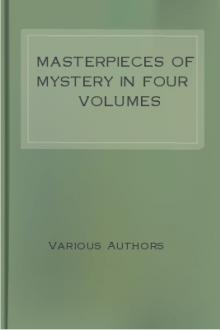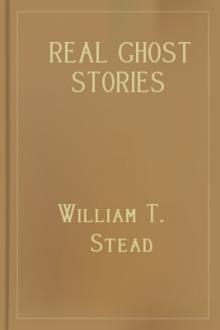Varney the Vampire; Or, the Feast of Blood by Prest and Rymer (ereader iphone .txt) 📗

- Author: Prest and Rymer
Book online «Varney the Vampire; Or, the Feast of Blood by Prest and Rymer (ereader iphone .txt) 📗». Author Prest and Rymer
"Out with it! I can bear to hear it now better than I could then! I told you that I was the common hangman of London!"
"You did, I must confess, to my most intense surprise."
"Yes, and yet you kept to me; and, but that I respected you too much to allow you to do so, you would, from old associations, have countenanced me; but I could not, and I would not, let you do so. I told you then that, although I held the terrible office, that I had not been yet called upon to perform its loathsome functions. Soon—soon—come the first effort—it was the last!"
"Indeed! You left the dreadful trade?"
"I did—I did. But what I want to tell you, for I could not then, was why I went ever to it. The wounds my heart had received were then too fresh to allow me to speak of them, but I will tell you now. The story is a brief one, Mr. Chillingworth. I pray you be seated."
CHAPTER LXXII. THE STRANGE STORY.—THE ARRIVAL OF THE MOB AT THE HALL, AND THEIR DISPERSION."You will find that the time which elapsed since I last saw you in London, to have been spent in an eventful, varied manner."—"You were in good circumstances then," said Mr. Chillingworth.—"I was, but many events happened after that which altered the prospect; made it even more gloomy than you can well imagine: but I will tell you all candidly, and you can keep watch upon Bannerworth Hall at the same time. You are well aware that I was well to do, and had ample funds, and inclination to spend them."—"I recollect: but you were married then, surely?"—"I was," said the stranger, sadly, "I was married then."—"And now?"—"I am a widower." The stranger seemed much moved, but, after a moment or so, he resumed—"I am a widower now; but how that event came about is partly my purpose to tell you. I had not married long—that is very long—for I have but one child, and she is not old, or of an age to know much more than what she may be taught; she is still in the course of education. I was early addicted to gamble; the dice had its charms, as all those who have ever engaged in play but too well know; it is perfectly fascinating."—"So I have heard," said Mr. Chillingworth; "though, for myself, I found a wife and professional pursuits quite incompatible with any pleasure that took either time or resources."—
"It is so. I would I had never entered one of those houses where men are deprived of their money and their own free will, for at the gambling-table you have no liberty, save that in gliding down the stream in company with others. How few have ever escaped destruction—none, I believe—men are perfectly fascinated; it is ruin alone that enables a man to see how he has been hurried onwards without thought or reflection; and how fallacious were all the hopes he ever entertained! Yes, ruin, and ruin alone, can do this; but, alas! 'tis then too late—the evil is done. Soon after my marriage I fell in with a Chevalier St. John. He was a man of the world in every sense of the word, and one that was well versed in all the ways of society. I never met with any man who was so perfectly master of himself, and of perfect ease and self-confidence as he was. He was never at a loss, and, come what would, never betrayed surprise or vexation—two qualities, he thought, never ought to be shown by any man who moved in society."—
"Indeed!"—"He was a strange man—a very strange man."—
"Did he gamble?"—
"It is difficult to give you a correct and direct answer. I should say he did, and yet he never lost or won much; but I have often thought he was more connected with those who did than was believed."—
"Was that a fact?" inquired Mr. Chillingworth.—
"You shall see as we go on, and be able to judge for yourself. I have thought he was. Well, he first took me to a handsome saloon, where gambling was carried on. We had been to the opera. As we came out, he recommended that we should sup at a house where he was well known, and where he was in the habit of spending his evenings after the opera, and before he retired. I agreed to this. I saw no reason why I should not. We went there, and bitterly have I repented of so doing for years since, and do to this day."—
"Your repentance has been sincere and lasting," said Mr. Chillingworth; "the one proves the other."—"It does; but I thought not so then. The place was glittering, and the wine good. It was a kind of earthly paradise; and when we had taken some wine, the chevalier said to me,—
"'I am desirous of seeing a friend backwards; he is at the hazard-table. Will you go with me?'—I hesitated. I feared to see the place where a vice was carried on. I knew myself inclined to prudential motives. I said to him,—'No, St. John, I'll wait here for you; it may be as well—the wine is good, and it will content me?'
"'Do so,' he said, smiling; 'but remember I seldom or never play myself, nor is there any reason why you should.'—'I'll go, but I will not play.'—'Certainly not; you are free alike to look on, play, or quit the place at any moment you please, and not be noticed, probably, by a single soul.'
"I arose, and we walked backwards, having called one of the men who were waiting about, but who were watchers and door-keepers of the 'hell.' We were led along the passage, and passed through the pair of doors, which were well secured and rendered the possibility of a surprise almost impossible. After these dark places, we were suddenly let into a place where we were dazzled by the light and brilliancy of the saloon. It was not so large as the one we left, but it was superior to it in all its appointments.
"At first I could not well see who was, or who was not, in the room where we were. As soon, however, as I found the use of my eyes, I noticed many well-dressed men, who were busily engaged in play, and who took no notice of any one who entered. We walked about for some minutes without speaking to any one, but merely looking on. I saw men engaged in play; some with earnestness, others again with great nonchalance, and money changed hands without the least remark. There were but few who spoke, and only those in play. There was a hum of conversation; but you could not distinguish what was said, unless you paid some attention to, and was in close vicinity with, the individual who spoke.
"'Well,' said St. John, 'what do you think of this place?'—'Why,' I replied, 'I had no notion of seeing a place fitted up as this is.'
"'No; isn't it superb?'—'It is beautifully done. They have many visitors,' said I, 'many more than I could have believed.'
"'Yes, they are all bona fide players; men of stamp and rank—none of your seedy legs who have only what they can cheat you out of.'—'Ah!'—'And besides,' he added, 'you may often form friendships here that lead to fortune hereafter. I do not mean in play, because there is no necessity for your doing so, or, if you do so, in going above a stake which you know won't hurt you.'—'Exactly.'
"'Many men can never approach a table like this, and sit down to an hour's play, but, if they do, they must stake not only more than they can afford, but all their property, leaving themselves beggars.' 'They do?" said I.
"'But men who know themselves, their resources, and choose to indulge for a time, may often come and lay the foundation to a very pretty fortune.'
"'Do you see your friend?' I inquired.—'No, I do not; but I will inquire if he has been here—if not, we will go.'
"He left me for a moment or two to make some inquiry, and I stood looking at the table, where there were four players, and who seemed to be engaged at a friendly game; and when one party won they looked grave, and when the other party lost they smiled and looked happy. I walked away, as the chevalier did not return immediately to me; and then I saw a gentleman rise up from a table. He had evidently lost. I was standing by the seat, unconsciously holding the back in my hand. I sat down without thinking or without speaking, and found myself at the hazard table.
"'Do you play, sir?'—'Yes,' I said. I had hardly





Comments (0)